The Reward for an Accepted Hajj is Paradise
From the moment Allah commanded His beloved Ibrahim (peace be upon him) to call humanity to the sacred pilgrimage, hearts have yearned for the sanctity of this revered house. Year after year, throngs of devoted souls from every corner of the globe have answered this divine summons, journeying to the ancient Kaaba. This pilgrimage, known as Hajj, is not merely a physical journey but a profound spiritual odyssey, rich with promise, forgiveness, and unparalleled rewards.
Ibn Abbas (may Allah be pleased with him) said: "When Ibrahim completed the building of the house, he was told to proclaim to the people. He said, 'O Lord, how can my voice reach them?' He said, 'Proclaim, and it is upon Me to convey.' So Ibrahim called out: 'O people, Hajj is enjoined upon you to the ancient house, so perform Hajj.' Those between the heavens and the earth heard him. Do you not see people coming from the farthest parts of the earth, responding?"
The obligation of Hajj was imposed by Allah on His servants once in a lifetime for those who are able. Allah the Almighty said: {And Hajj to the House is a duty that mankind owes to Allah, for whoever can find a way thereto.} (Al-Imran: 97). The obligation of Hajj is among the well-known essentials of Islam.
Allah has attached great rewards and immense merit to the performance of this act of worship, which stimulates the Muslim’s enthusiasm, sharpens their resolve, and makes them approach it with a willing heart and determined spirit, hoping for Allah’s reward, forgiveness, and what He has prepared for those who perform Hajj. Many texts speak of the virtues of Hajj and Umrah.
Hajj erases what came before it
Hajj is one of the greatest means of expiation for sins and misdeeds. When a servant performs a Mabrur (accepted) Hajj, they return as sinless as the day their mother bore them, pure from sins and misdeeds. In a hadith from Abu Huraira (may Allah be pleased with him), he said: I heard the Prophet (peace and blessings be upon him) say: "Whoever performs Hajj and does not have sexual relations (with their spouse) nor commit sin will return as sinless as the day they were born" (Bukhari). The apparent meaning of the hadith is the forgiveness of both minor and major sins, as mentioned by Hafiz Ibn Hajar (may Allah have mercy on him). However, this forgiveness is conditional, as stated in the hadith, on not engaging in sexual relations during that period or committing sins or prohibited things. Sexual relations refer to intercourse and its preludes, while sin refers to evil deeds and disobedience.
It is mentioned in Sahih that Amr ibn al-As (may Allah be pleased with him) came to the Prophet (peace and blessings be upon him) to enter Islam, and he wanted to make a condition that he be forgiven for his past sins committed during his state of disbelief. The Prophet (peace and blessings be upon him) mentioned three things that expiate all previous sins and misdeeds. Amr ibn al-As said: "When Allah placed Islam in my heart, I came to the Messenger of Allah (peace and blessings be upon him) and said: 'Extend your hand so that I may pledge allegiance to you.' He extended his hand, but I withdrew mine. He said: 'What is wrong, O Amr?' I said: 'I want to stipulate a condition.' He asked: 'What condition?' I said: 'That I be forgiven.' He said: 'Do you not know that Islam wipes out what came before it, that Hijrah wipes out what came before it, and that Hajj wipes out what came before it'" (Muslim). Thus, Hajj is among the acts of worship that expiate previous sins.
Some scholars have elaborated on this by saying that Hajj expiates major sins that are rights of Allah but not the rights of humans. The expiation of the rights of Allah does not mean their automatic cancellation, but rather the elimination of the sin associated with neglecting and disregarding them. Most scholars agree that Hajj does not expiate any transgression on other’s rights; instead, repentance must include the restitution of the rights to their owners or the administration of retribution on the Day of Judgment.
The reward for an accepted Hajj is Paradise
Allah has promised His servants that He will reward them for their obedience, and He has made the reward for an accepted Hajj Paradise. There is no other reward for it. Abu Huraira (may Allah be pleased with him) reported that the Messenger of Allah (peace and blessings be upon him) said: "From one Umrah to the next is an expiation for what comes in between, and an accepted Hajj has no reward except Paradise" (Bukhari and Muslim). However, this reward is conditional on the Hajj being accepted, as not every Hajj earns the reward of Paradise. The accepted Hajj is the one that is in accordance with the Shariah in both action and belief, free from any association with shirk, sin, lewdness, and disobedience.
Signs of an accepted Hajj include the Muslim's state being better after Hajj than before it. This is illustrated in the verse: {And those who are guided, He increases them in guidance and gives them their righteousness} (Muhammad: 17). Al-Hasan Al-Basri (may Allah have mercy on him) said: "An accepted Hajj is one after which a person returns, disinterested in the world and desiring the Hereafter." In summary, an accepted Hajj, as stated by Al-Qurtubi, is "the Hajj that fulfills its regulations and is performed as required from the individual in the most complete manner."
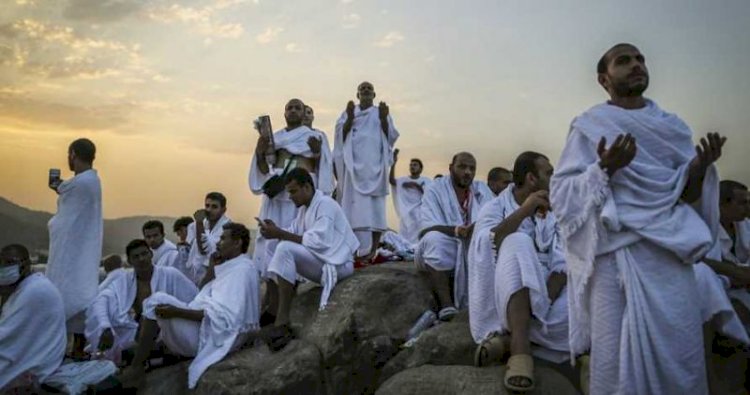
Hajj is one of the best acts of righteousness
Righteous deeds are numerous and varied, and they are not all on the same level of virtue and reward. Since life is short, and deeds may compete for the servant’s time, not knowing which to prioritize, it is essential to have an understanding of the ranks of deeds. This enables a person to draw closer to Allah through the most beloved deeds to Him, prioritizing them over others that are of a lesser degree and merit.
The Prophet (peace and blessings be upon him) ranked these deeds in a hadith reported by Abu Huraira in the "Sahihain" when he was asked: "Which deed is best?" He said: "Belief in Allah and His Messenger." He was asked, "Then what?" He said: "Jihad in the path of Allah." He was asked, "Then what?" He said: "An accepted Hajj." One of the Salaf explained the reason for this preference by saying: "I examined the righteous deeds, finding that prayer exerts the body without wealth, fasting likewise, but Hajj exerts both, so I found it superior."
Hajj is a form of Jihad
Jihad has various forms and levels, including jihad with wealth, with oneself, with words, and by striving in obedience to Allah. All these forms are clearly manifested in Hajj, which involves bodily hardship and the expenditure of wealth in the way of Allah.
Allah ordained Hajj as a form of Jihad for those who are weak and unable to fight in the path of Allah. In a hadith, Aisha (may Allah be pleased with her) said: "O Messenger of Allah, we see Jihad as the best deed. Should we not engage in Jihad?" He said: "The best Jihad for you is an accepted Hajj" (Bukhari). The Companions used to alternate between different forms of Jihad. Umar (may Allah be pleased with him) said: "When you have saddled your mounts, set out for Hajj, for it is one of the two Jihads." Ibn Mas'ud (may Allah be pleased with him) said: "It is only saddles and mounts; the saddle is for the path of Allah, and the mount is for Hajj." This, among other things, indicates the significance of this obligation in Islamic law and its importance in the life of a Muslim.
Hajj is a means of wealth and multiplies spending
A person might mistakenly think that spending money on Hajj and Umrah could lead to a decrease in their wealth, exposing them to need and poverty. The Prophet (peace and blessings be upon him) wanted to dispel this misconception and fear, clarifying that spending on Hajj and Umrah and performing them consecutively brings provision and removes poverty by Allah’s permission. It is confirmed in a hadith from Ibn Mas'ud (may Allah be pleased with him), who said: The Messenger of Allah (peace and blessings be upon him) said: "Perform Hajj and Umrah consecutively, for they remove poverty and sins as a furnace removes impurities from iron, gold, and silver" (Ahmad and others). The furnace is the instrument used by the blacksmith to blow air into the fire, removing the impurities and filth that cling to the iron.
Just as Allah promised to compensate a person in this world for what they spend on Hajj and to expand their provision, He also promised to multiply that spending before Him, just as He multiplies spending in the path of Allah. In a hadith from Buraidah (may Allah be pleased with him), the Prophet (peace and blessings be upon him) said: "Spending in Hajj is like spending in the path of Allah, multiplied seven hundred times" (Ahmad with a sound chain).
The pilgrim is under Allah’s protection
Given that Hajj is associated with certain dangers and fears that might discourage a person from performing this obligation, Allah guarantees the safety and care of those who set out for Hajj, intending to respond to His call, both in life and after death. In life, if they return to their family, they return with reward and compensation. In the Hereafter, they will be resurrected in the state they died.
Disclaimer
The views expressed in this article are the author’s own and do not necessarily mirror Islamonweb’s editorial stance.

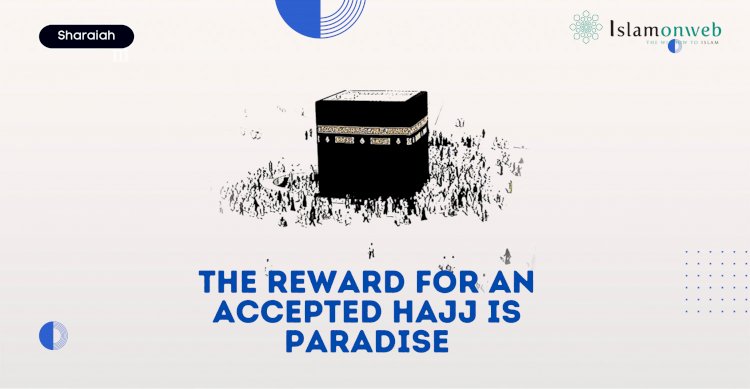


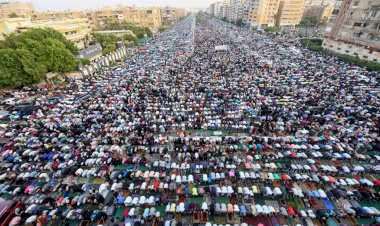
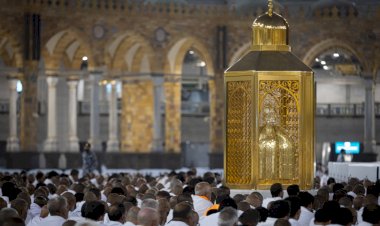
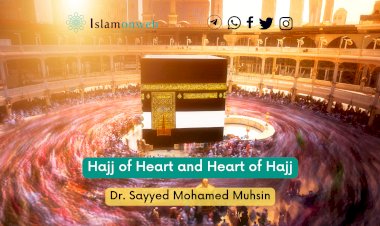
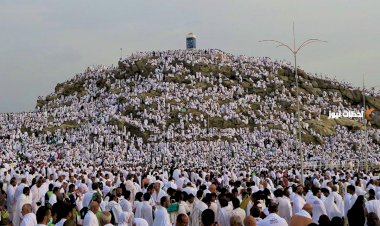
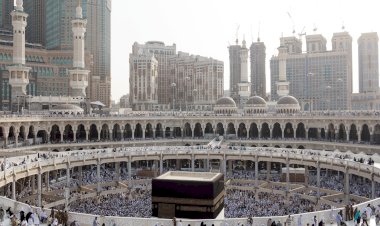
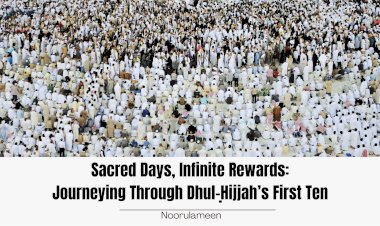














Leave A Comment